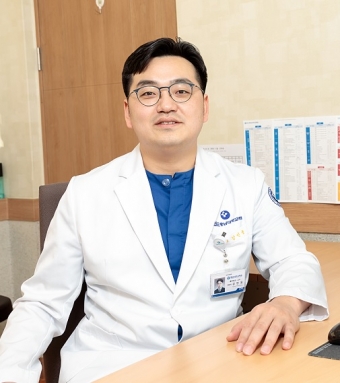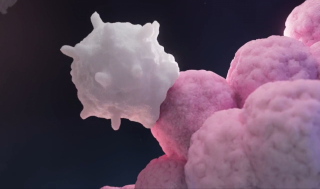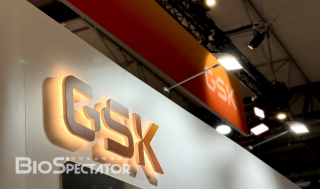탐방
MediTulip, prescription of experts to solve un-met needs in the field
by Jongwon Jang
Prof. Kang Min-woong, Department of Thoracic and Cardiovascular Surgery, Chungnam National University Hospital, has developed a surgical linear stapler for preserving margin tissue.

MediTulip corporation was founded by Professor Kang Min-woong of Chungnam National University Hospital, who has developed a surgical asymmetric linear stapler (NALS) to preserve ablation margin tissue. He found concrete solutions to solve un-met needs that were vividly felt in the medical field, and then started the business.
The surgical linear stapler is used for thoracoscopic and laparoscopic surgery. It is a disposable surgical tool that simultaneously performs the resection and suture of organs. Surgical linear staples constitute the largest market for consumable medical devices used during surgery, and the market for cancer treatment products has reached 5 trillion KRW.
The most important ‘first principle’ in cancer surgery is the goal of complete resection (R0 resection), in which no cancer cells remain at the surgical site. To confirm that complete resection has been performed, the presence of tumor cells should be checked in the resection margin, the nearest tissue of the resection site.
“In the case of conventional staples for surgical use, there is a disadvantage that the tissue is squeezed or damaged by the staples that are applied to prevent bleeding during ablation”, Kang said. This makes it difficult to obtain accurate test results. “In fact, it is almost impossible to carry out a biopsy at the ablation margin,” he explained. After all, many doctors choose to ablate more tissues for complete ablation. This affects the quality of life of patients, as well as having ethical issues.
The Asymmetric linear staples (NALS) developed by Medi-Tulip have been developed to meet the needs of this field. The medical stapler, which is applied three lines symmetrically to the residual organs and the removal organs around the cutting blade, is improved. By removing one line of staple line closest to the removed organ side blade, NALS can obtain the tissue at the ablated margin nearest to the section without damaging. This tissue can be used to verify complete resection.
CEO Kang said, “Until now, it has been impossible to check the true resection margin because of tissue damage, but our products can accurately detect the presence of cancer cells. This can prevent both the risk of dysfunctions caused by the over-resection of the tissue, and the risk of recurrence caused by under-resection.”
Medi Tulip has thoroughly analyzed 10,000 patents related to surgical linear staplers, creating a patent barrier that is difficult to avoid. Currently, two domestic patents have been registered, and US and Japanese patents have been granted. Defense patents have also been prepared.
Kang carried out preclinical experiments using female pigs. Medi Tulip performed thoracoscopic wedge resection and compared NALS (Novel Asymmetrical Linear Stapler), a product developed by Medi Tulip with the currently existing product.
In the NALS-applied tissue, after resection of the tissue, bleeding did not occur on both sides, as in the conventional products. No air leakage was observed when the air-leakage test was performed at 30 cm H2O pressure to confirm the function of the remaining lung.
The researchers found that when resected using NALS, a resection margin of 3.1 mm in the resected section could be obtained, and the optimal tissue sample could be taken from this section. In fact, it was confirmed that alveolar structures were preserved in tissue samples of lungs that were cut using NALS in H&E tissue staining and microscopic observation, respectively, using tissue samples with NALS and tissue samples from existing products.
CEO Kang has been continuously introducing products at overseas conferences with these results. “The inspiration is a positive response from field medical staff, and there is a lot of favorable opinion from current doctors who will become real users”, he said. Medi-Tulip is currently organizing a global advisory group of about 10 people, including experts from the US, Europe, and Japan.
Medi Tulip is actively seeking overseas expansion of NALS. It has set up a bridgehead for entry into the Chinese market through a contract with China Precision to transfer technology, and is expecting approval this year. United States and other global medical device companies are also discussing various forms of cooperation. Medi Tulip is also building a GMP factory in Osong, Chungbuk, to manufacture the medical device.



















